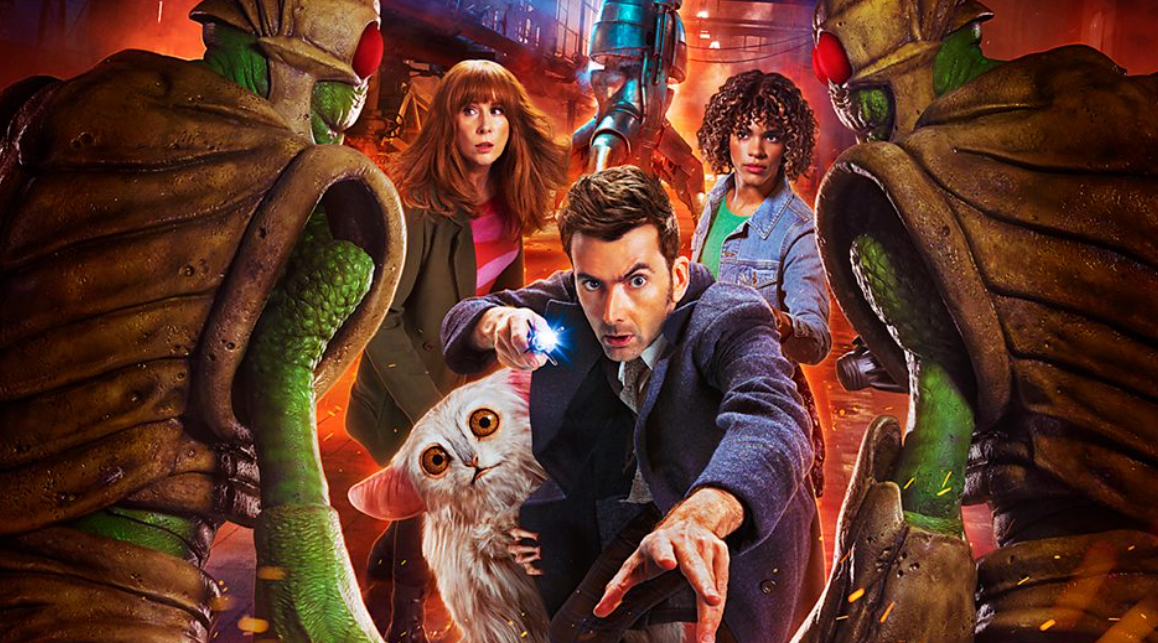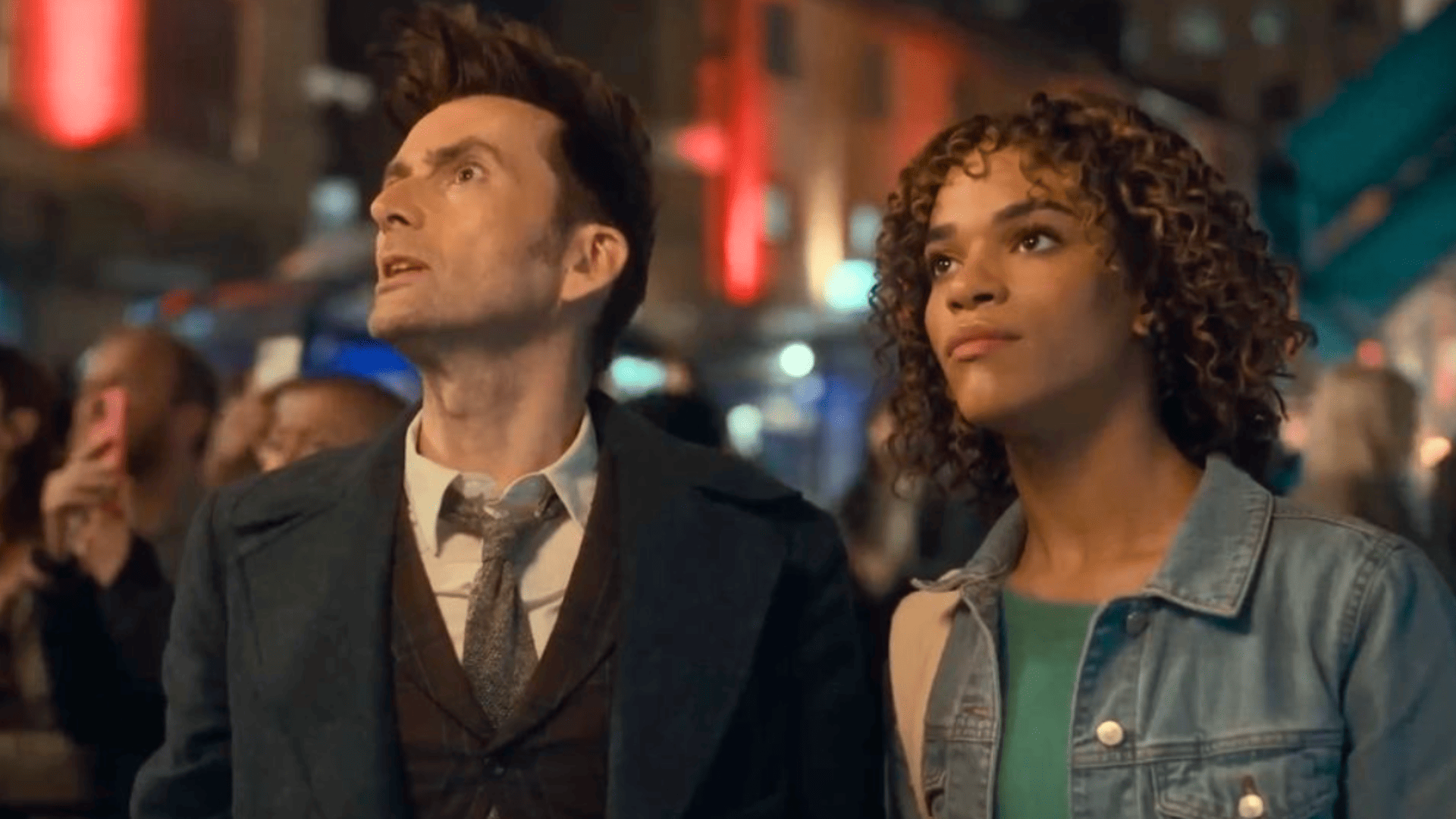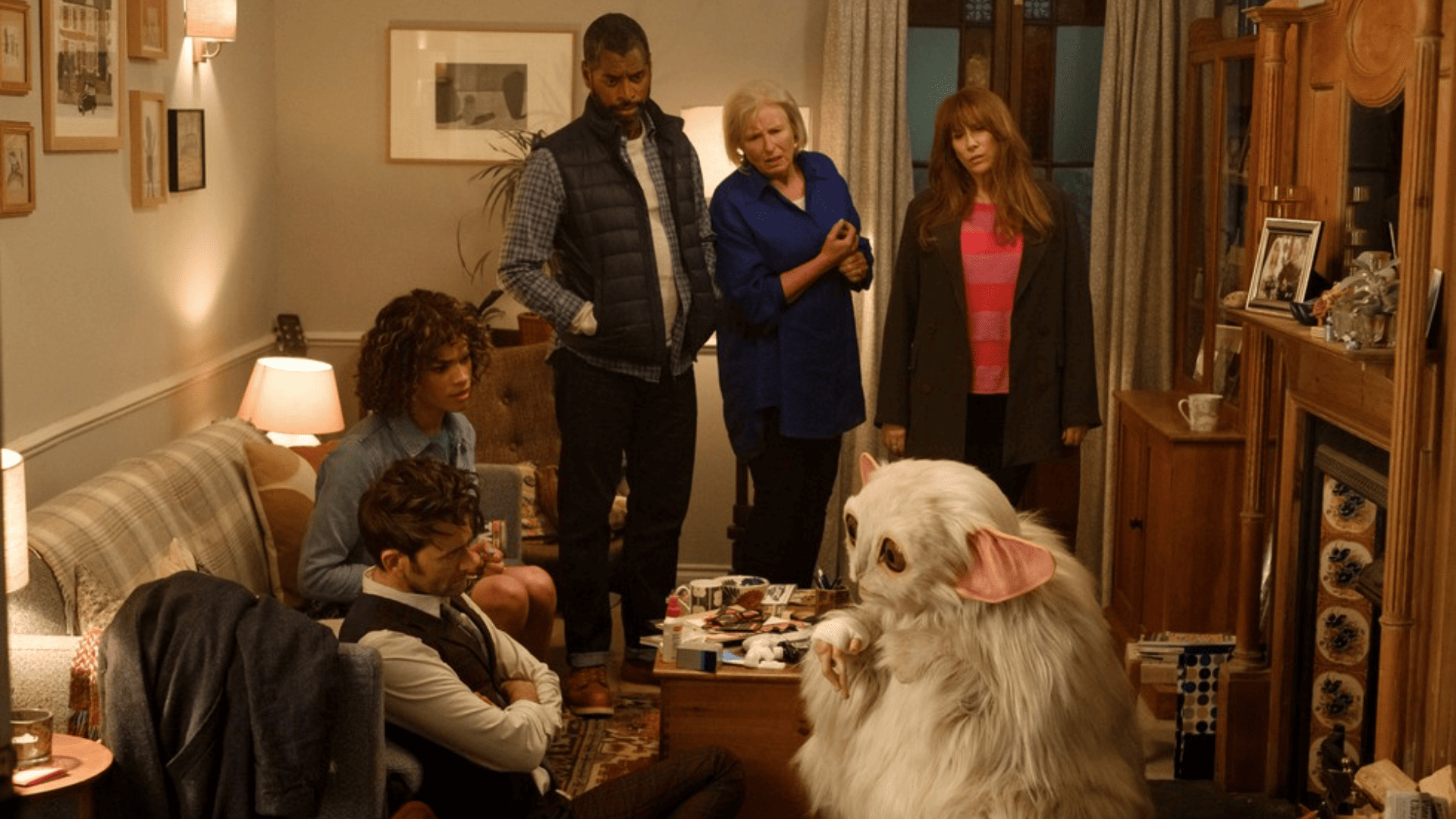
Doctor Who offers heartfelt non-binary representation
Doctor Who returned to our screens this past Saturday with its first 60th anniversary special, rejoining David Tennant and Catherine Tate as The Doctor and Donna Noble and offering a heartfelt LGBTQ+ story featuring non-binary characters, such as Donna’s daughter (played by Heartstopper actor Yasmin Finney) Rose.
Doctor Who: The Star Beast is Russell T. Davies’s first episode back, and it’s safe to say he’s come out swinging. Not only do we get several questions answered about how Donna can come back — which I will be spoiling in this article, sorry — but we also get to see an honest-to-god conversation about who The Doctor is, which does include his gender identity.
For some fans, this mere glance at The Doctor and their gender identity may feel ridiculous. As we quickly learned with Jodie Whittaker as the 13th Doctor, The Doctor’s opinion on how they present themselves doesn’t go much further than whether or not they think it looks good, which, as someone can relate to that, it gives off non-binary, or even genderfluid vibes. All in all, whether intended or not, The Doctor has always been a trans icon, and no amount of posturing from hateful people will change that.
In The Star Beast, this glance goes a little deeper. In a discussion with Miriam Margoyles’ The Meep, The Doctor is corrected by the extraterrestrial about their pronouns — they don’t go by he, she, or even they; just ‘Meep.’ Then, in a truly lovely moment, The Doctor happily says that they do that too in being known solely as The Doctor. It’s a small scene, but considering how happy queer fans of the time-traveling series are, I can assume it had its promised effect.

Yet even outside The Doctor, Finney’s character, Rose, stood out. While this episode is jam-packed with DoctorDonna goodness, Rose is a brilliant addition to the Whoniverse. Like her mother, she is kind and a defender of the weak and oppressed, even if it could harm her. She also ends up saving the day, and let me tell you, it is an overwhelming feeling of pure joy to see a trans character take charge and be the hero instead of being used as a literal and metaphorical punching bag. It’s still something that feels so scarce, even in this day and age.
Of course, The Star Beast’s portrayal of trans identities doesn’t come without its flaws. The big twist of this episode is the reveal that Donna, who will die if she remembers The Doctor due to the metacrisis whirling around in her brain, had managed to pass on some of this overwhelming power that makes up The Doctor through to Rose when she gave birth to her. At the time of this event, The Doctor was male, and Donna was female, two binaries. This meant that with Donna having a part of The Doctor inside her (I know this is getting weird, grin and bear it, reader), her giving birth to Rose made her, you guessed it, non-binary.
On one hand, this deals with the whole metacrisis without me crying myself to sleep because Donna died, and I think she’s fabulous. On the other hand, it paints a rather unfortunate picture that it was never Rose’s decision to be who she truly was in the first place and that it was pre-defined by Donna and The Doctor. I can understand the appeal of that to some extent because if there’s one thing that I’ve always stood by myself, it is that I was born the way that I am, and nothing happened to make me queer. So, Rose being born this way isn’t a stretch by any means.
Even so, I can’t help but have mixed feelings about how Davies revealed Rose’s origin, because it becomes less about Rose as a character and all about The Doctor and Donna. This continues to be a running theme throughout the episode, particularly when the latter is concerned. One of the first scenes we see of Rose is where a group of boys from school use her deadname, leading Donna to almost swing at them. Rose ignores this and heads off to her shed to continue tinkering on her projects, and we don’t get to see how she feels about it at all. In a story that has Rose save the day, we rarely get her side of things and instead are funneled to see transness through the cis perspective of Donna and her mother, Sylvia.

And yet, despite these flaws, I can’t be too frustrated at how Davies has presented this LGBTQ+ inclusive story in The Star Beast. There is something inherently authentic about Sylvia and Donna’s discussion about Rose and Sylvia’s missteps in addressing her grandchild. As someone whose own mother has messed up occasionally with the wrong pronoun, it didn’t feel as though Doctor Who was trying to lay blame at Sylvia’s feet, but show that it is okay to slip up, so long as you’re trying. Far too many times, this feeling of shame has made it so that good people are afraid to make mistakes, and thus don’t engage with their own prejudices. How, then, is it possible to learn from them? With Sylvia, this wasn’t the case.
I’m also just a very big fan of how positive this queer representation was overall. The trans community continues to be scapegoated by the British government and media (which, ironically, includes the BBC) every single day to the point that it’s become almost a running joke to label the UK as ‘TERF island.’ Despite being so little of the population here, the way the trans community has been weaponized as being the root of all problems continues to put innocent people in danger. So, despite my criticism of how Rose’s story was handled, I won’t deny my joy at Doctor Who being irrevocably pro-trans in an anniversary special that broke records. That’s cool as f*ck.
Was it cheesy? Oh yes. Was it the best thing I’ve seen from Doctor Who in a while? Undeniably. Yet for The Star Beast to show a family who utterly loves their trans child and supports them wholeheartedly? It sends a message, not just about transness, but about love and identity and how important it is to celebrate who we are. It’s a message that not just the UK needs to hear, but the whole world. And what better way to do it than with a show about an alien that travels across worlds and meets so many unique people, of all shapes and sizes?





